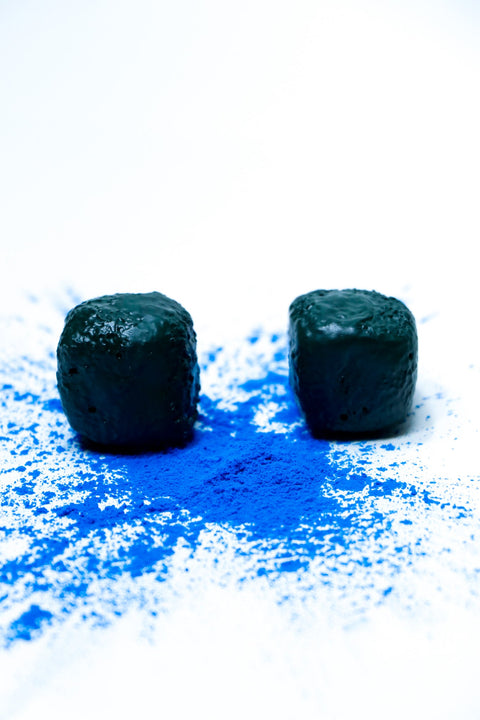
The Power of Blue Spiurlina & phycocyanin: A Deep Dive into Fresh Spirulina
The Power of Phycocyanin: A Deep Dive into Fresh Spirulina
Spirulina has been hailed as a superfood for decades, but what makes it so remarkable? One of its key components, phycocyanin, is what sets it apart. In this blog, we'll explore spirulina's unique light-harvesting complex and the manifold benefits of phycocyanin for your health.
What is Phycocyanin?
Phycocyanin is a vibrant blue pigment found in spirulina, a type of blue-green algae. This pigment is essential for spirulina's ability to harvest light efficiently, acting much like a solar panel. By capturing light energy, phycocyanin plays a critical role in the process of photosynthesis, enabling the algae to convert light into chemical energy.
Phycocyanin acts like a Solar Panel
Think of phycocyanin as the ultimate solar panel. Its primary function is to absorb specific wavelengths of light and convert them into energy. In the world of algae, this process is pivotal for survival and growth. But the benefits of phycocyanin extend far beyond the aquatic environment; they have significant implications for human health as well.
Phycocyanin in Your Body
A Powerful Antioxidant
Phycocyanin is not just any pigment; it's a powerful antioxidant. It acts as an electron donor, neutralizing free radicals that can cause oxidative stress and damage cells. Remarkably, phycocyanin is 20 times more potent than vitamin C in its total reduction power, making it an extraordinary protector against cellular damage.
Reducing Inflammatory Markers
Inflammation is at the root of many chronic diseases, from arthritis to cardiovascular issues. Phycocyanin has been shown to reduce inflammatory markers in the body, offering significant relief and preventive benefits for those suffering from inflammation-related conditions. By dampening the inflammatory response, phycocyanin helps maintain a balanced and healthy immune system.
Neuroprotective Benefits
One of the most fascinating aspects of phycocyanin is its ability to cross the blood-brain barrier. This means it can directly impact brain health by acting as a neuroprotective agent. Studies have suggested that phycocyanin can protect neurons from damage, potentially reducing the risk of neurodegenerative diseases like Alzheimer's and Parkinson's.
More Potent Than Vitamin C
In the realm of antioxidants, vitamin C often takes the spotlight. However, phycocyanin outshines it significantly. With a total reduction power 20 times greater than that of vitamin C, phycocyanin offers unparalleled protection against oxidative stress and cellular damage. This makes it an invaluable addition to any health regimen focused on longevity and vitality.
Why Health Enthusiasts Should Care
If you're a health enthusiast, nutrition seeker, or part of the biohacking community, understanding the benefits of phycocyanin can be a game-changer. Incorporating spirulina into your diet provides you with a robust defense against oxidative stress, inflammation, and neurodegenerative diseases. It's not just about adding a superfood to your diet; it's about leveraging the power of nature to enhance your overall well-being.
Conclusion
Phycocyanin in spirulina is more than just a pigment; it's a powerhouse of health benefits. From acting as a high-efficiency solar panel in the algae world to providing robust antioxidant and anti-inflammatory effects in the human body, phycocyanin is truly remarkable. Its ability to protect neurons and its superior reduction power compared to vitamin C make it indispensable for anyone looking to optimize their health.
Are you ready to harness the power of spirulina? Start incorporating this extraordinary superfood into your diet today and experience the myriad benefits of phycocyanin for yourself.
See our shop here
